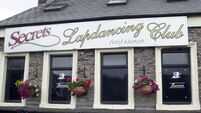Mon, 17 Jul, 2023 - 02:00
Ann Murphy
Drug treatment organisations must be funded like any other part of the health service, says the head of a drug treatment service in Cork.
Colette Kelleher, chief executive of the Tabor Group, said drug treatment services are “the Cinderella of the healthcare service”.
Already a subscriber? Sign in
You have reached your article limit.
Subscribe to access all of the Irish Examiner.
Annual €130 €80
Best value
Monthly €12€6 / month
Introductory offers for new customers. Annual billed once for first year. Renews at €130. Monthly initial discount (first 3 months) billed monthly, then €12 a month. Ts&Cs apply.
CONNECT WITH US TODAY
Be the first to know the latest news and updates

















